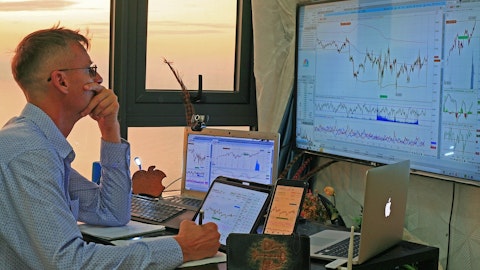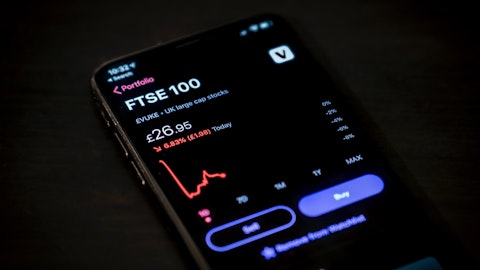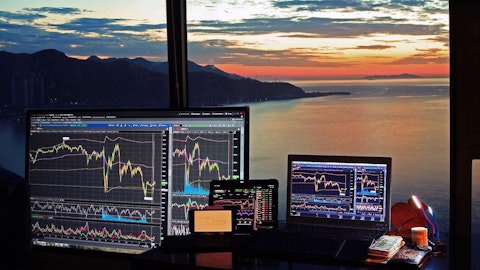Of course, they want to support us, but they also have a mission to support the electrification of transportation. And what this means now is that other governmental entities who don’t have the resources or the time or the inclination to put together an extensive and expensive and time-consuming and frankly risky bidding process, they don’t need to now. Some small town or state or other that doesn’t want to go through that (ph) does not need to. They can perfectly legally buy off the California contract or off the federal contract in the event that they have a disaster preparedness angle. And I mean, some of them pretty big. Dallas County, I think, was one of them we announced recently. They bought from us, but they bought through the federal GSA contract.
So, yeah, Dallas County is not exactly tiny little backwater somewhere, and yet they use the GSA contract because they know it’s been well negotiated. They know it’s safe. And it saves them a huge amount of work. And frankly, taxpayers’ dollars going through that whole process of the competitive and very time-consuming process. There’s a lot of urgency to get EV charting infrastructure right now. Urgency is our friend of Beam Global, because we’re so much faster doing it in less than an hour or what others take a couple of years often to do. And so, if they can avoid going through a lengthy RFP and contracting process, just jumps straight on the GSA contract, we’re going to do that, and that’s very helpful for us.
Tate Sullivan: Great. Thank you, Desmond.
Desmond Wheatley: Thank you.
Operator: The next question comes from Craig Irwin with Roth MKM. Please go ahead.
Craig Irwin: Good evening. Hey, thank you for taking my questions. So, most of most of what I would have asked has already been covered, but there’s a really interesting angle to your story that that I — you didn’t cover in your prepared remarks, the carbon credit angle, right? Over the next number of years, you’re going to start generating quite a few carbon credits. And there’s an opportunity there to maybe monetize that. Can you maybe share with us where you are in the process of evaluating this? How this could potentially come together for you? What should we be looking for? Or if is this not really a short-term priority?
Desmond Wheatley: Well, I think it’s fantastic. We’ve even identified it. And of course, you’re absolutely right. The simple fact of the matter is the cost of carbon, particularly in Europe, by the way, has accelerated dramatically. I think just two years ago, it was about $21 per ton, and it’s now over $100 per ton. And EV ARC, which is the mainstay product that we produce, generates over — or removes over 12 metric tons of carbon per annum in its operations. That’s a single EV ARC. So, if you think of just — if you look at our backlog today, multiply that by 12 metric tons and then multiply that by $100 a metric ton, you can sort of see this becomes a really meaningful source of money for whoever owns that EV ARC product.
Now, of course, most of the — well, all of the EV ARCs that we produced today are owned by other us, and we’ve enjoyed that business model so far. But I’ve made no secret of the fact that at some point in the future, it’s not unlikely that we own a network of these things ourselves through model or through some other business model. And in those instances, all of those carbon benefits will endure either to us or to whoever we want them to. And there is a very significant monetary aspect to this, which has not been realized by us to date, not been reported by us today. And certainly, I do not think before you brought it up being recognized at all by the markets. But yes, it’s very real and it’s that kind of recurring revenue that I know that people are so eager to see us producing.





